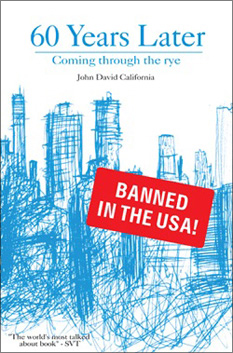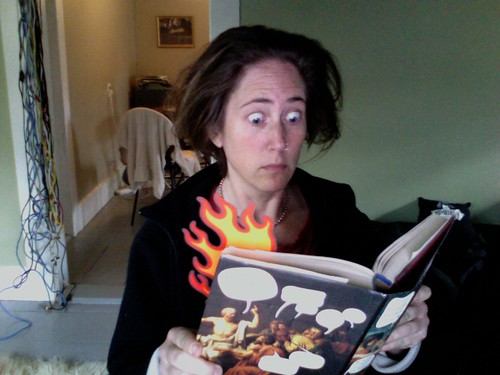Banned Books Week is next week. ALA has nifty little web badges that they have made freely available and, in typical ALA fashion, given a bunch of instructions for how you’re supposed to use them (link to this URL, include this ALT text, etc.). If it were me, I think I’d just put the images on my own server, give people the HTML to include the image on their site and use some handy stats-tracker to keep track of how many people had been viewing the banned books buttons, maybe even in realtime. That would be cool. Oh wait, I can do that.
Uncensored and hardcore cams – gratis sex chat
porn chat and live sex
Fan of big buttocks and hot babes? Love see them bouncing on the hard cocks? We have a distinctive suggestion to you. Join the conversation where you can take any sexy hottie and show her all the love you have got. Our chat deliver you the hottest girls of the business who ride the cock, give head, take it and look nice and hot.
Free Sex Video Chat
Everyone has his own inclinations considering hair color and ethnicities of those young ladies, and here you can meet with anyone you enjoy from Asian doll to black chick with a dick. Don`t pass by live porn chat room with tranny. These young girls are exceptionally lovely and lovely to inspire and energize their clients. When in need of digital intercourse with excellent camera young girls they have awesome taste in dressing to make you their functionality unforgettable.
Hello friend! Now you’re about the most popular Free Live Sex cams chat porn in Europe – Chatporn. Not so important, what brings you here, the urge to diversify your life that is intimate, or you are tired of watching pornography videos – here you will discover a lot of things before.

Want to use it? Copy this HTML (and mind the line breaks): <a href=”http://newprotest.org/details.pl?495″><img src=”http://librarian.net/tempo/bbw.gif”/></a> and thank the folks at newprotest who made it originally.
If it were me, I’d definitely make sure that the main Banned Books Page was a bit better at explaining why Banned Books Week exists, rather than just linking me right to the ALA store. ALA’s Action Guide is probably a better place to start.
Each year, the American Library Association (ALA) is asked why the week is called Banned Books Week instead of Challenged Books Week, since the majority of the books featured during the week are not banned, but “merely” challenged. There are two reasons. One, ALA does not “own” the name Banned Books Week, but is just one of several cosponsors of BBW; therefore, ALA cannot change the name without all the cosponsors agreeing to a change. Two, none want to do so, primarily because a challenge is an attempt to ban or restrict materials, based upon the objections of a person or group. A successful challenge would result in materials being banned or restricted.
So this is saying two things really: one, they can’t change the name; two, they wouldn’t change it if they could. Couldn’t you just say that? Why is this explanation so obtuse? “none want to do so because…” because why? I’d be much happier if they’d just said “Look, we sank $5000 into t-shirts that we haven’t sold yet. We’re keeping the name” And if this question is asked every year, shouldn’t it maybe be on the FAQ by now? Since ALA talks so much about its cosponsors, let’s look at what they’re doing this year
Since ALA is really the main go-to organization for this “holiday”, maybe it’s time they had more of a destination site (ireadbannedbooks.org is taken, sadly) instead of just cramming all their information into the ALA template and enduring terrible URLs (link goes to “quick and easy” guide to BBW for librarians, wouldn’t you like to write down that URL and share it?) This would beat pseudoparticipatory pages like the Vote for Your Favorite Banned Book page which is clearly geared towards the YA crowd which asks you WHAT IS YOUR FAVORITE CHALLENGED BOOK (PICK ONE) (emphasis theirs). It also highlights the thing we know about Banned Books Week that we don’t talk about much — the bulk of these books are challenged by parents for being age-inappropriate for children. While I think this is still a formidable thing for librarians to deal with, it’s totally different from people trying to block a book from being sold at all.
My plan is to spend this year’s Banned Books Week reflecting on the nature of intolerance, predjudice and flat-out anxiety, motivators that causes people to want to control the ideas and issues that other people can have access to. Libraries and schools are two places that this happens in the public sphere, but we all know there are many more. So buy a bracelet if you want to, but don’t kid yourself that you can shop your way out of this problem. You can’t buy a ticket to freedom, not one that works anyhow.
update: 1,272 4,785 hits on the image so far!


